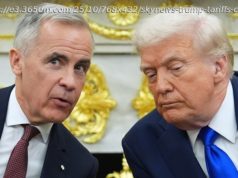The United States announced a deal Thursday to lift tough sanctions on Chinese telecommunications giant ZTE, a company that has been at the center of…
The United States announced a deal Thursday to lift tough sanctions on Chinese telecommunications giant ZTE, a company that has been at the center of a dispute between China and the United States.
The Commerce Department said that ZTE had agreed to pay a $1 billion fine and allow the United States to more closely inspect the company by effectively having a hand-picked compliance team embedded inside.
It is not clear what the United States received in return. ZTE had been a bargaining chip in negotiations between the two countries, which have been striving to reach a trade deal that would prevent tit-for-tat tariffs from going into effect.
But the company’s fate has gotten caught up in a bigger web, including an upcoming summit between President Trump and North Korea’s leader and the success of a U. S. telecom company, Qualcomm, which sells a large amount of semiconductors to ZTE and is awaiting Chinese approval of a deal to acquire a Dutch telecom firm that will help it build the next generation of wireless technology, known as 5G.
Trump softened his approach to ZTE several weeks ago after Chinese President Xi Jinping asked Trump to consider easing penalties on the company, which was headed toward collapse after U. S. sanctions barred it from buying any U. S.-made goods. That request came at a sensitive diplomatic moment for Trump, who is heading to Singapore next week to meet with North Korea’s leader, Kim Jung Un. Trump has made Xi his partner on North Korea while condemning China’s trade practices.
Trump has said the ZTE move is part of “the larger trade deal we are negotiating with China and my personal relationship with President Xi.”
The settlement with ZTE is likely to inflame lawmakers, including top Republicans, who have objected to helping a Chinese company that has been accused of posing a national security threat. Defense officials have long been concerned that the company’s products may be vulnerable to espionage or disruption. Major U. S. wireless carriers have for years been effectively blocked from buying its network equipment.






